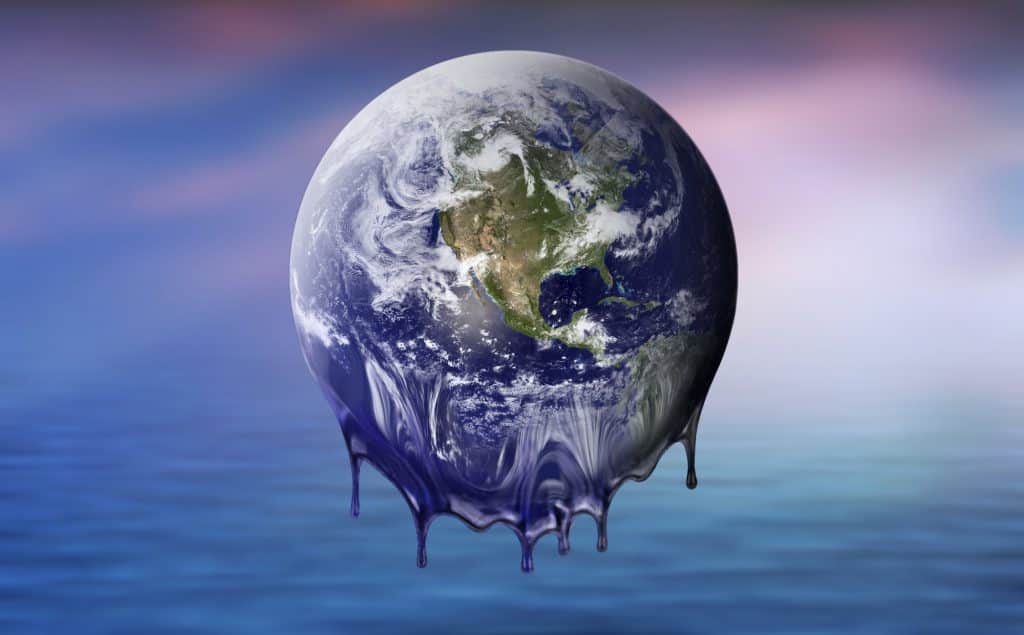Last year the world set “alarming” new records in four key tests of climate health, a United Nations body has warned.
The tests were greenhouse gas concentrations, sea level rise, ocean heat and ocean acidification.
António Guterres, the UN chief, described the latest World Meteorological Organization (WMO) report as a “dismal litany” of the ways humanity is disrupting the climate.
What did the report find?
To build a global picture of a changing climate, the WMO every year gauges climate change against key tests. Four of these set new records:
- Ocean heat hit a record high, having risen particularly strongly in the the past two decades, and is reaching even deeper depths.
- Ocean acidification: Scientists are confident that the open ocean is now the most acidic it has ever been for 26,000 years.
- Global average sea levels reached a new record high in 2021, after increasing at more than double the previous rate, mainly due to accelerating ice melt.
- Greenhouse gas concentrations already reached a new global high in 2020, despite pandemic lockdowns, and continued to rise into 2021 and 2022.
What’s so bad about the ocean?
The ocean continued to warm, and that warming is reaching deeper. There is little release for heat locked far down, and the warm temperatures are irreversible for centuries or millennia.
That heat provides energy for cyclones tropical storms, hurricanes and typhoons and cyclones, fuelling their damage.
Global mean average sea levels are now increasing at a rate of 4.5mm a year, more than double the rate they were 20 years ago of 2.1mm a year. The increase is driven by glaciers and ice sheets melting and releasing water.
Globally they’ve risen 100mm on average since 1993, but that isn’t distributed evenly, with areas like the Tropical Pacific, the Southwest Indian Ocean and the South Atlantic bearing the brunt.
This has “major implications for hundreds of millions of coastal dwellers and increases vulnerability to tropical cyclones”, the report warns.
What’s the good news?
Climate change is the “biggest challenge for the welfare of mankind this century”, but there are plenty of ways, and just about enough time, to head off the worst impacts, the WMO secretary-general told Sky News.
“We have to stop using fossil fossil fuels – and that means coal in the first instance, then oil and natural gas,” Petteri Taalas said.
“And then we should stop deforestation in tropical rainforest areas.”
Favouring “more of a vegetarian diet” would help protect those forests, he added.
Omar Baddour, the agency’s climate chief, said: “The hope is only to act now. There is no other hope.”
While energy is “always a must for development”, we need to develop different sources and ways of using energy, he told Sky News.
“But that is possible.”
He cited studies showing that transition to renewable energy can increase development, especially in developing countries, or that using solar energy in Africa could increase crop production, “which is a good for stabilising communities”.
The report also calls for better warning and forecasting systems to help prevent natural hazards like flooding from turning into disasters that disrupt and take lives.
How do these changes affect food?
The study painted a stark picture of the impact on food, warning the “compounded effects of conflict, extreme weather events and economic shocks, further exacerbated by the pandemic, have led to a rise in hunger, undermining decades of progress towards improving food security”.
Prof Dave Reay, director of the Edinburgh Climate Change Institute at the Edinburgh University, who was not involved in the report, said that without “sustained action to buffer everyone from the spiky shocks of global food consumer prices, hunger is where climate change is really going to bite”.
The report comes in the same week that the Bank of England governor Andrew Bailey warned of “apocalyptic” food prices and India limited wheat exports to protect its own supply after suffering such extreme heat that dehydrated birds fell from the sky and heavy rain.
What else is in the report?
While some indicators of global warming, such as average temperature or ice melt, did not break new global records, there were still “alarming” records on regional scales, such as extreme heat in Canada or ice melt in the North American Rocky Mountains, Mr Baddour explained.
“That’s the key message.”
Prof Nigel Arnell, from the department of meteorology at Reading University, urged negotiators meeting at the next UN climate talks COP27 in Egypt in November to read the report, saying: “How much more evidence do we need before we get serious about reducing emissions?”
All the while using another opportunity to feed the arms corporations in their strategy to maximise their profits.
Most politicians are feathering their own nests and working for companies that they prioritise over the public. As ever was.
Douglas James
Award Winning Independent Citizen Media Needs Your Help. PLEASE SUPPORT US FOR JUST £2 A MONTH https://dorseteye.com/donate/












